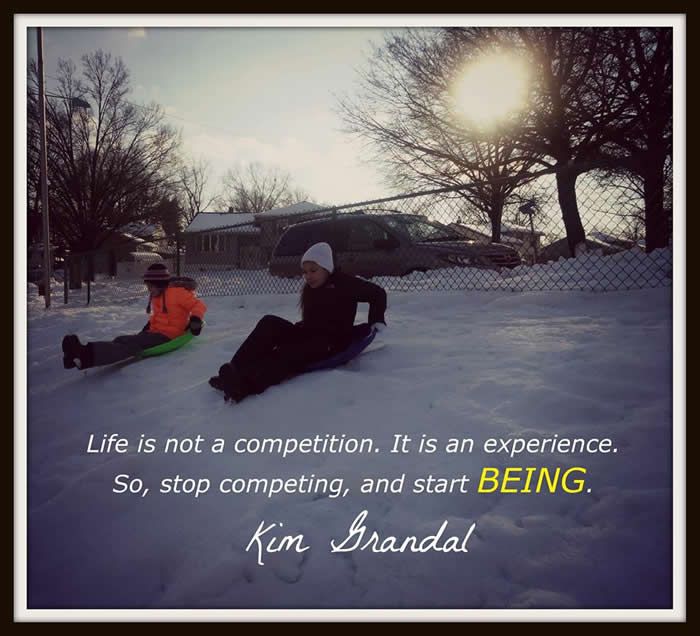 Teamwork is a word used often in healthcare, but do we really understand what it means to work as a team? Unfortunately, many Activity Professionals feel they are working independently, not part of a team. Activity departments are usually small and many times, overlooked, making teamwork a necessity. Teams can be found within the Activity Department itself, as well as outside of the department. There is much talk lately about the role of facility staff in providing meaningful activities to long term care residents. Teamwork is a word used often in healthcare, but do we really understand what it means to work as a team? Unfortunately, many Activity Professionals feel they are working independently, not part of a team. Activity departments are usually small and many times, overlooked, making teamwork a necessity. Teams can be found within the Activity Department itself, as well as outside of the department. There is much talk lately about the role of facility staff in providing meaningful activities to long term care residents.
First, it is important to define “teamwork”. Stockley (2007) defines teamwork as, “A group of people, contributing their individual knowledge and skills but working together to achieve a common goal or task.” Many tasks, goals, projects etc. entail that people cooperatively work together. Therefore, teamwork has become a fundamental element of long term care and other healthcare facilities.
According to Stockely (2007) teamwork is important because it can increase employee moral and motivation, as well as increase productivity. Many Activity Directors and professionals, work alone, which can lead to stress, lack of morale, feelings of inadequacy, and eventually, a high turnover rate. For some reason, Activity Professionals tend to shy away from asking for help, and at the same time, have the inability to say “no” when asked to take on additional assignments.
Stockely also suggest that teamwork is essential because individuals often do not have all of the knowledge and skills necessary. Activity Professionals can highly relate to this because the job requires a vast array of leisure talents, skills and knowledge. Since not everyone is good at singing, doing a craft, cooking, and so on, there is a need to share talents, expertise, resources and such. Once, again, teamwork becomes a vital component of providing meaningful activities that meets the individual needs and interests of the residents, patients, and clients in health care facilities.
Before we begin to develop teams it is important to understand the process. Team Technology (2006) identifies the team building process. First, the team leader must clarify the team goal. What is the team expected to do? Perhaps the team will organize a community event, create a recreation room, or increase CNA involvement in activities. Next, the team leader must demonstrate goal commitment. If the team leader establishes a particular goal, then there must be evidence of commitment such as memos, posters, flyers, minutes of meetings, etc. The next step is very important and involves identifying any inhibitors. What factors may act as a barrier to the development of the team? Is it a certain staff member, lack of time, lack of interest, etc? Once these inhibitors are identified, remove them and watch your team develop!
Creating teams requires vision, planning, and commitment. There are many strategies for creating teams and promoting teamwork. My recipe for teamwork includes the following ingredients:
1) Leadership, 2) Motivation, 3) Teambuilding Activities
Demonstrating excellent leadership skills is an important part of creating a team. Leaders provide inspiration, create opportunities, energize people, and make key choices. It is important to lead by example, have vision, honesty, and humility, and to provide support, training, and mentorship. (S. Khan 2006). Remember, that being a manager and being a leader are different roles, both of which are equally important but it is the leader that leads his/her people to work together.
Motivating employees is also a key element in creating teams. Dwight D. Eisenhower once said,
“Motivation is the art of getting people to do what you want them to do because they want to do it.”
There are many ways in which we can motivate ourselves, the Activity staff, and the facility staff. Some suggestions include:
- Have Activity staff attend care plan meetings
- Involve the Activity staff in the Quality Improvement process
- Have the Administrator meet with the staff
- Encourage feedback
- Encourage staff to be on committees
- Holiday events
- Theme days/dress down days
- Sunshine Club (celebrate birthdays, weddings, babies, etc.)
- Luncheons or other meals
- Celebrate recognition weeks (Activity Professionals Week, TR Week, etc.)
- Have departmental t-shirts
- Go on field trips to other facilities
- Provide awards and certificates
- Celebrate employee appreciation day
- Ask for employee feedback (employee surveys and suggestion box, etc.)
- Play games, have contests, etc.
The final recipe for building successful teams is the facilitation of team building activities. These activities are not only fun but have many benefits. Larry Lipman (2006) suggests that team building activities create an open climate for communication, promote trust, establish rapport, stimulate creativity, promote learning, provide opportunity for hidden problems to surface, and of course, strengthen teamwork and motivation. There are many fun team building activities, icebreakers, energizers.
**CLICK HERE FOR A FUN TEAM BUILDING GAME**
In summary, teamwork is an essential aspect of most healthcare facilities especially in long-term care, assisted living and adult day care centers. Don’t be afraid to be the team leader! Build an effective team by being a leader, a motivator and a team building facilitator. So, go ahead and build a championship team instead of a team of champions!
References
Khan, Sharif. (2003.) Awaken the leader in you: Ten easy steps to developing your leadership skills. Retrieved on July 2, 2006 from this link
Lipman, Larry. (2007) Top ten reasons for team building. Retrieved on July 2, 2006 from this link
Stockley, Derek. (1996-2007) The importance of teamwork. Retrieved on January 8, 2007 from this link
Team Technology. (1995-2007) What is team building? Retrieved July 2, 2006 from this link
|







